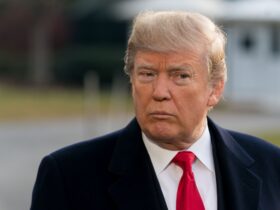New Delhi, Sep 27 – It is difficult to discern whether Pakistan is angry more with its biggest aid-giver America or arch rival India. It is also confusing while trying to comprehend its sense of loss and being ignored by the superpower, whether to target Joe Biden or India’s Narendra Modi.
It is very easy to whip up anti-American sentiment in Pakistan. But the current phase has touched new heights – or depths – in the mood. But the Imran Khan Government is unable to transfer to the general public. The Islamist bodies that thrive on this have in any case have their own agenda. They are more likely to add to their list Khan’s widely perceived ‘failure’ at securing recognition, representation and thus, respectability, for the Taliban rulers of Afghanistan.
As for the India-Pakistan-US angle, Modi met Biden last week, while Imran has yet to get a phone call. And Afghanistan is only the latest straw in the wind. He hadn’t got the much-awaited phone call for six months after Biden took office.
The Biden administration has not even attempted to establish contact that goes beyond the official. This contrasts, even in the world of diplomacy where rhetoric is played down, but atmospherics matter and things are said and done in correct, calibrated manner. This is visible in the Biden-Modi meeting.
Their personal and easy rapport at the very first face-to-face began with Biden referring to his possible ancestors who live in Mumbai. “Are we related?” he asked Modi. This indicates mutual respect and credibility. The US also cemented this occasion in Modi’s presence by returning India 153 artefacts and rare objects.
By contrast, through his daily diatribe, Imran Khan is keen to display his anger at the US clearly and openly. His peeve is undiplomatic, to say the least.
He also wants to wear his China connect on his sleeves. Many credit Pakistan for the switch-over to China as a brilliant masterstroke, considering that everyone expects history to repeat.
The US is likely to “lose interest” in Pakistan now that it has quit Afghanistan. This had happened in the 1990s, after the Russians had quit and the Moscow-backed regime in Kabul was overrun by the Mujahideen. However, China was not a factor then. Today, it is confronting the US as the main global adversary. Precisely for this reason, the US will want to retain presence in the region, with or without help from Pakistan.
Pakistan has teamed up with China in Afghanistan against America’s two other adversaries, Russia and Iran. Seen from the American standpoint, this is the worst time for Pakistan to line up with the ‘opposite’ camp. That too, after cocking the snook at the Americans in Afghanistan by nurturing the Taliban for two decades.
A sustained, hostile, cryptic and loud campaign, at home and through interviews given to global media outlets, has not likened Imran Khan and his country to the US, and now that they are out of Afghanistan, the European allies.
For four decades, Pakistan promoted militancy in the name of religion. If it had the tacit support of the West for the first two decades in the fast two, after the 9/11 horror, it has been opposed.
Pakistan gained first, by hoodwinking the West and second, because the latter was not effective. Both paid their respective price — the US/Nato had to leave Afghanistan and Pakistan is, very rightly, a victim of terrorism as it claims. Only, it will not admit that it is also its creator and promoter.
With Modi at the UN, Pakistan could not but bristle because while there are no takers – not even the OIC – for his Kashmir diatribe against India, the latter, going over the UN and Biden, touched the American sentiment by reminding everyone of the presence in Pakistan of Al Qaida leader Osama bin Laden, the mastermind of the 9/11 massacre.












Leave a Reply